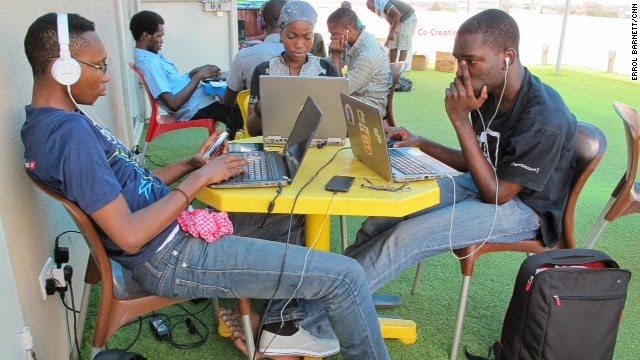Nigeria lags behind in terms of investment in telecoms infrastructure
compared to other fast growing economies in the world, a report has
stated.
stated.
Specifically, the report showed that Nigeria is significantly behind
in terms of investment per capita compared to economies such as Brazil
with a telecoms investment per capita of $167.
in terms of investment per capita compared to economies such as Brazil
with a telecoms investment per capita of $167.
The Financial Derivatives Company Limited in its latest report noted that the telecoms sector routinely evokes negative reactions from the Nigerian public.
According to the report, the major argument of telecoms antagonists is hinged on the alleged underinvestment of operators in infrastructure and human capital despite being highly profitable.
This the report however stated, may be more perception than reality as recent data from the World Bank suggested that telecoms investment in Nigeria is at par with African economies -if not better.
According to World Bank, $6.6 billion was invested in telecoms infrastructure in Nigeria from 2010 through 2012, which works out to a total of about $40 per person.
Between 2010 and 2012, Brazil and South Africa spent about $127 and $62 more per person respectively on telecoms infrastructure.
It noted that the switching intention amongst mobile users is largely due to the perceived poor quality of their current service provider.
“Last week, a friend in Lagos lost out on a significant transaction due to his inability to communicate with his business partner in Kaduna. This is one of many examples of how the state of the telecoms sector affects the life of the average Nigerian.
“Typically, operators are labeled as exploiters, a clear case of calling a dog a bad name to hang it. However, is the inefficiency of the telecoms sector really down to exploitation by ruthless operators?” the FDC report queried.
It stated that the macro-economic fundamentals of Nigeria provide a sound base to support the economic viability of the telecom operators in the country.
Following the recent GDP rebasing exercise, Nigeria is now the largest African economy in Africa with a GDP of N80.22 trillion.
Telecommunications and information services contributed 8.7 per cent to GDP, which is the fourth highest contributor to GDP amongst the sub-sectors.
“More importantly, the large and growing population combined with the improving income per capita builds a case for increased profitability for operators.
“However, the fundamental shift in the industry from a voice dominated environment to a data dominated environment is a threat to the viability of most operators,” it added.


No comments:
Post a Comment